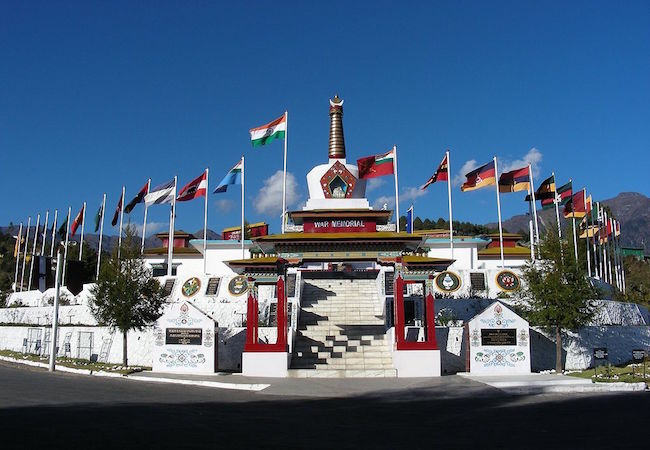Nuclear powers and politics of non-proliferation

By Nasurullah Brohi
In the post Cold war era, one of the major foreign policy objectives of the great powers has become further prevention of the nuclear proliferation and for the reason; the nuclear powers also developed many frameworks, especially like the Nuclear Nonproliferation Treaty (NPT) in 1968 with the aim to prevent efforts by any non-nuclear state to acquire the same. The imprecise role of the NPT showed that the median of non-proliferation had turned out to be profoundly ingrained in international affairs than ever before and in the post Soviet era the former Soviet states also cooperated with the international community by withdrawing the post Soviet nuclear weapons under their possession.
For many states having nuclear ambitions, the non-proliferation efforts and the NPT are perceived to be discriminatory in the nature. Of course, for the non-nuclear weapon states there should be no global nuclear monopoly. The reason behind the global power status is mainly due to the nuclear capability where none of the states will ever dare to attack any nuclear weapon state. The argument is further strengthened with the recent examples of Iraq, Afghanistan and many other states those were not capable of safeguarding any external invasion mainly due to the lack of political instability and weak defence capability otherwise, for any aggressor, the cost of invasion could have been higher than the assessments of any state while attacking any nuclear weapon state.
The complexity of the international political system compels states to either acquire nukes or align themselves with nuclear weapon states to safeguard themselves under the nuclear umbrellas of their allies. Those who by anyway have acquired nukes, have a greater leverages in the global political arena. Such phenomenon generates a sense of inferiority amongst others and compels many to become rogue states by either way and pursue the nuclear path in order to achieve a level of deterrence and prevent their enemies from the aggression.
But realistically, such action-reaction syndrome and issues of nation pride will not make the world not more than a stockpile of mass killing weapons; a world where the very weak governmental structure having nuclear capabilities will only cause disaster to the human race and ultimately total destruction of the world.
By the May 1998, the non-proliferation efforts seemed to remain a success, but the gradual nuclearization process in South Asia seriously undermined the global non-proliferation efforts. The rational choice for many non-nuclear states to choose the nuclear option subversively is due to the reason to safeguard them and counter the external threats and aggression of hostile nations. Such reasons also serve as a pretext for ensuring their sovereignty and security and therefore; in many cases, the states like India and China who had fought a major war in 1962 and are still seemed to be hostile towards each other, India found itself in a most vulnerable situation having only conventional arsenal means sitting next to the nuclear capable belligerent neighbour. Likewise, the case was with Pakistan, which has been a victim of regional aggression and also fought three wars with India and ultimately lost a major portion of its territory now known as Bangladesh. For Pakistan, the Indian nuclearization was not less than a security nightmare by repeated nuclear ambitions of India first in 1974 by the Smiling Budha (a code name for Indian nuclear explosions) and later on the explosions of 1998, Pakistan remained with no choice and was seriously under security compulsions to ensure its very existence through maintenance of the status-quo and acquisition of strategic means.
One of the strongest arguments for the question why states seek to develop nuclear capability is because of the privilege and the status of becoming a great power having the leverage of making independent national decision making for achieving the vital goals of national interest in modern political discourse.
However, the nuclear weapon states still seek their level best to stop the efforts of some state trying to acquire nuclear technology. The discriminatory nature of the NPT is fundamentally due to its justification of pre-1968 nuclear status of those who became de-jure nuclear powers. Moreover, if nuclear weapons are not good for global peace and security, then those need elimination once for all. The basic reasons of the malfunctioning of non-proliferation efforts of the international community is due to the fundamental issue of the absence of a real-time workable framework for resolving the causes of tensions and conflicts in the regions which ultimately pushes states to seek strategic weapons options in an anarchic world. For example, the issue of Kashmir between India and Pakistan that has made the South Asian region a nuclear flashpoint. A Middle East, where a prolong conflict between Palestine and nuclear capable and encroaching Israel, having a hostile relationship with its neighbours will further discourage the global non-proliferation efforts. Moreover, the most prominent obligations of the NPT are that, the Nuclear weapon states (NWS) are not supposed to transfer and assist any non-nuclear weapon state in the acquisition of the nuclear technology. The NPT’s success is also debatable because right from its very inception, the Treaty has itself been under fluctuation due to the violating actions of its founding members like the U.S nuclear cooperation with the India which facilitates India to import atomic fuel and technologies from the US ultimately paving the way for a tit for tat situation in an already troubled region of South Asia to further indulge in an arms race.
The other major flaws of great powers’ non-proliferation efforts are also inherent in their policies of imposing sanction and isolating the nuclear ambitious nations, which in itself is an end to the approaches of reaching any possible resolution.




